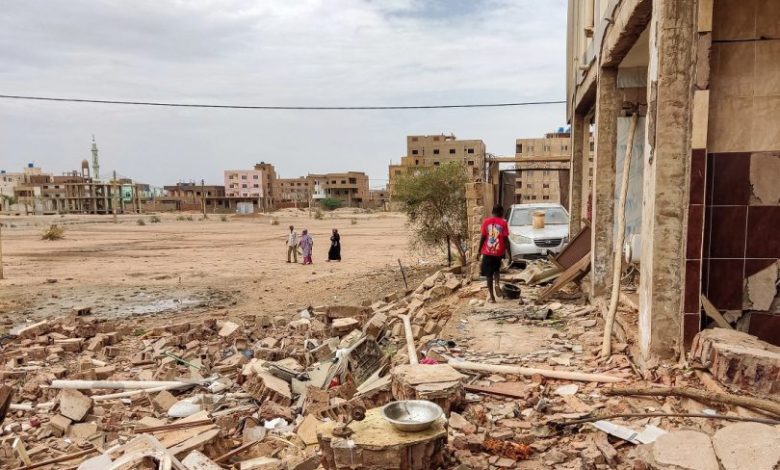Agricultural expert: The cost of rebuilding the agricultural sector reaches 15 billion dollars

Sudan Events – Nahed Oshi
Food security specialist Dr. Mohamed Ahmed Omar revealed that Sudan lost about $3 billion during this year in revenues from agricultural products that were affected by the war, noting that the cost of rebuilding the agricultural and agricultural manufacturing sector amounts to $15 billion “unless more damages occur.”
He indicated in his speech to (Al-Ahdath) that the situation of the agricultural sector and food security had worsened before the outbreak of war due to government policies, especially economic liberalization, which had disastrous effects on agriculture and affected exchange rates and thus the prices of agricultural inputs. He said that however Sudan is, by nature, an agricultural country, yet imports most of its production inputs, such as fertilizers, pesticides, and spare parts.
On the same context, burlap (seeds) from abroad and the high prices of these inputs led to many farmers refraining from financing the agricultural process, as well as a decline in financing from banks for agriculture.
Food gap:
Dr. Mohamed added that the Ministry of Finance failed to finance production inputs, which led to a delay in agriculture and thus a decrease in productivity, indicating the decline in agricultural production before the outbreak of war. He said we face a gap in food security, especially with regard to millet, corn, and legume crops such as chickpeas and red lentils, while the wheat import bill exceeded one billion dollars, as the volume of consumption exceeds 3 million tons of wheat, 5 million tons of corn, and about one million tons of millet, while there is a deficit of 80% in wheat stock. The bill to fill this deficit exceeds one billion dollars.
He said that the imported wheat sector was affected by the war, thus creating a gap in wheat in all regions of Sudan. He said that the outbreak of war coincided with the harvest of the winter season in many regions, while the summer season faced a disaster because many regions in Darfur were affected by the war and the failure of the summer season affected the various types of corn and millet products. They are concentrated in Darfur and Kordofan, and agricultural projects were affected in Khartoum (West Omdurman, Soba, Al-Silait, North Bahri). Even the safe areas were affected, given that the large agricultural investments were not safe.
Time bomb:
The expert stated that due to its preoccupation with the war, the government did not care about financing agriculture, and there is a large deficit in the summer season of corn.
He noted that the concentration of fertilizer and pesticide trade in Khartoum affected the season and the extension of the war to Gezira State. It also affected the cultivation of wheat, red lentils, chickpeas, onions and beans, as the fate of the winter season in Gezira State is unknown. He pointed out that the areas planted with wheat exceed 200 thousand acres, but the harvesters that are brought from Gedaref are not available, in addition to the lack of spare parts, the scarcity of fuel, and the difficulty of transporting from production areas to consumption areas, including the step of having the cotton crop in farmers’ homes due to the lack of marketing. He said that cotton is a time bomb that is flammable. He added that failure to market agricultural crops leads to the bankruptcy of farms.
Omar called for the formation of a national committee for agriculture in the Gezira State to oversee agricultural affairs away from politics, indicating that the state of Gezira grows 60% of the wheat produced in Sudan, and now the situation is dangerous as there is no hope for harvesting operations in the Gezira Scheme.
Regarding the preparations for the summer season, he said that they start from next April until July, the planting period. However, in light of the ongoing war, the summer season may face failure. He said that the failure of the summer season and the failure of the winter harvest, which begins from mid-March to mid-April, constitutes the beginning of famine in Sudan and will create catastrophic humanitarian conditions in the long term. In addition, after the war, Sudan reconstruction project will be a major project based on agriculture to support the economy according to strategic plans based on agricultural industrialization and optimal exploitation of lands and resources, confirming the ability of Sudanese cadres to lead post-war reconstruction.



